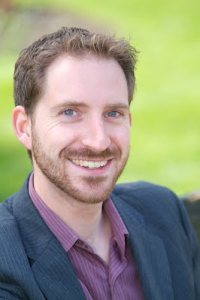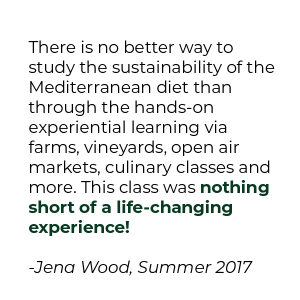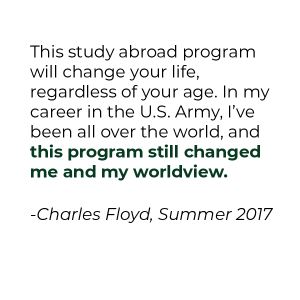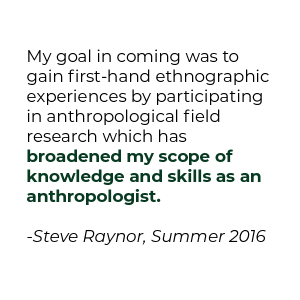![]()
Join West Chester University’s Ethnographic Field School and spend 5 memorable weeks in the historic city of Perugia, nestled in the mystical hills of Umbria in close proximity to the art of Florence, the spirituality of Assisi, and the vineyards of Tuscany. Under the instruction of West Chester University anthropology professor Michael Di Giovine, an internationally recognized scholar on food, tourism and cultural heritage, students will be instructed in the methods of ethnography, anthropology’s unique qualitative research methodology of participating in, and observing, the daily lives of locals. We will be introduced to the rich culinary culture of Italy through exclusive behind-the-scenes tours at organic vineyards, sustainable farms, local markets, and country inns—as well as a cooking lesson at the Umbra Institute’s state-of-the-art test kitchen. We will enjoy a truffle hunting adventure and spend time deep in the countryside, taking idyllic walks to learn about wild herbs, talking with local beekeepers, and learning how to make cheese and salumi. We will then be placed in groups at a food-related venue among locals who have made their living valorizing and revitalizing their traditional sustainable food practices. Mentored by Dr. DiGiovine, each group will design, carry out, and present their findings of a short-term ethnographic research project at this practicum site. At the end of the course, we may have the opportunity to present our papers at an international conference, and may also publish our papers in a leading food-related Italian magazine. This trip is a must for undergraduates thinking of working in a consulting or research-based profession, as a public health professional, applying to graduate school, or who want a deeper understanding of Italy’s incomparable food traditions!
This class is ideal for professionalization, and also counts in WCU’s sustainability pathway and Sustainability Minor program. This is a Global Rams Designated program.

Michael A. Di Giovine is Professor of Anthropology in the Department of Anthropology and Sociology at West Chester University of Pennsylvania (USA), the Director of the West Chester University Museum of Anthropology and Archaeology, and the Director of the Museum Studies Program. He is also an Honorary Fellow in the Department of Anthropology at the University of Wisconsin-Madison. In addition to teaching introductory courses in cultural anthropology, he co-teaches the annual course, Sustainable Food Systems with Professor Patricia Davidson, a dietician.
Michael’s research in Italy and Southeast Asia lies at the intersection of global mobilities (tourism/pilgrimage, and immigration), heritage, development, foodways, and comparative religious movements. He has run the Ethnographic Field School in partnership with the Umbra Institute since 2016, and sits on the Advisory Board for the Umbra Institute’s Food, Sustainability and Environment Program.
A former tour operator in Italy whose research frequently centers of tourism and pilgrimage, Michael is highly involved in promoting and furthering anthropological research. His extensive network of sustainable food producers in Umbria have been cultivated over many years through his research, work in the tourism industry, and participation in several study abroad programs as a youth; you will even be hosted by longtime friends and family!
Dr. Di Giovine is an internationally recognized scholar of tourism, heritage and foodways who has appeared in The Economist, Forbes Magazine, NPR, Australian National Radio, The Boston Globe, Atlas Obscura, and the venerable cooking magazine, La Cucina Italiana. He has keynoted conferences for the United Nations World Tourism Organization, UNESCO’s Advisory Body ICOMOS; The European Union; Penn Museum, and the Sorbonne. He is the author of over 10 books, including Edible Identities: Food as Cultural Heritage; The Heritage-scape: UNESCO, World Heritage and Tourism; and Study Abroad and the Quest for an Anti-Tourism Experience. For the University of Toronto Press, Michael is currently writing the textbook, Tourism: Anthropological Insights. He is also the Convenor of the Anthropology of Tourism Interest Group at the American Anthropological Association, which he helped to found and served as its first Program Chair, coordinating highly visible sessions and events. With a strong belief in the benefits of interdisciplinarity in tourism scholarship, he is a founding member of the Tourism-Contact-Culture Network, sits on the academic board of the International Journal of Religious Tourism and Pilgrimage, serves as Book Reviews Editor for both the Journal of Tourism and Cultural Change, and is the series editor of The Anthropology of Tourism: Heritage, Mobility and Society with Lexington Books.




Each semester, West Chester University students take advantage of the Umbra Institute’s beautiful location in historic Perugia, Italy. The close partnership between WCU and Umbra allows students to complete a course, taught in English, that count toward their degree. Courses are designed to use Perugia as a classroom and to give students ample time to travel elsewhere in Italy and Europe.
Apply through WCUAll apartments are located walking distance from the Institute and the city’s many events and amenities. With panoramic views abound, the city invites exploration & discovery around every corner.
Apartments are fully equipped (WiFi included!) making it easy for you and your friends to plan a dinner in or to catch your next train or plane out of town, and explore pizzerias, trattorias, or coffee bars.
Being a university city, Perugia hosts events throughout the year—from Eurochocolate to the Umbria Jazz Festival. Whether attending one of Umbra’s workshops (ex. Travel Workshop) or events (ex. Wine Tasting), there is always something to do!
Take Cooking Classes
Explore the Food Culture
Live Like a Local
Student Testimonials (Podcast)